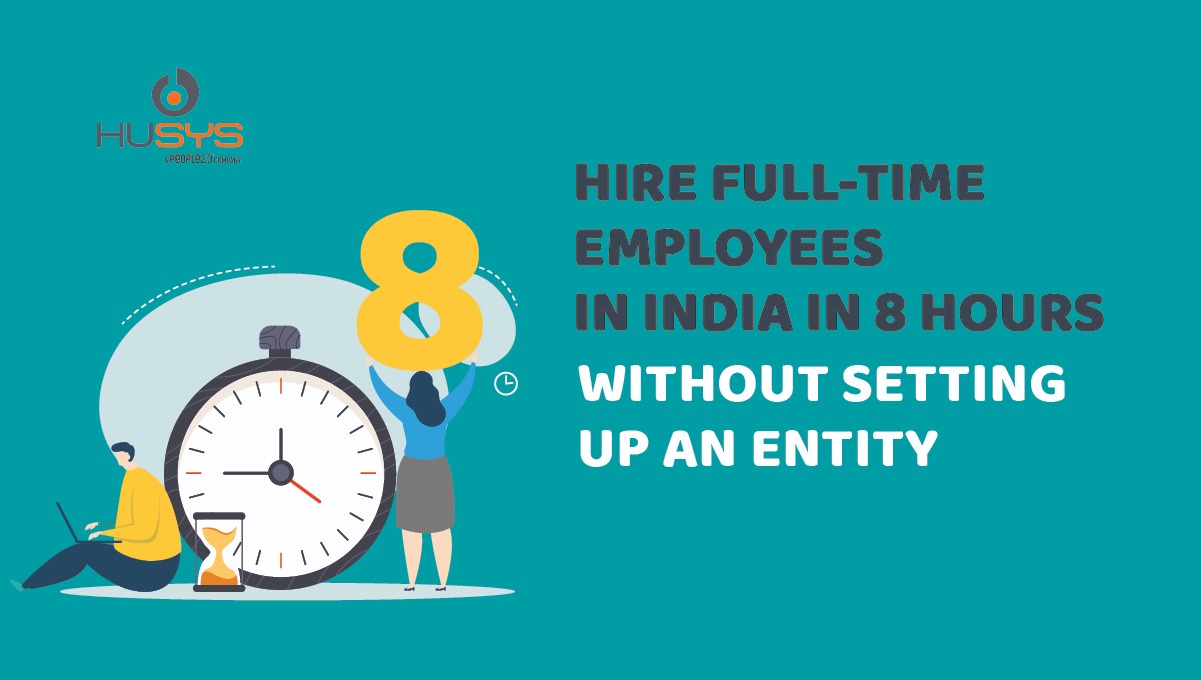The contract staffing market is growing rapidly. According to American Staffing Association-digital, on any given day, 2.1% of employed adults (3.1 million) are working in the staffing industry, with 63% being provisional employees and 37% being contract employees.
However, hiring contract employees comes with challenges such as high turnover, expensive overtime, and trust issues with existing employees, to name a few.
So, how do you deal with them? With the five tips we’re discussing below! But before that, let’s understand contract staffing.
What is Contract Staffing?
Contract staffing is the process of hiring workers on a contract basis. The contract can be for a specific project or task with an end date. The difference between contract staffing and traditional outsourcing is that the worker is not a permanent employee of the company and, therefore, not eligible for any benefits (insurance, retirement benefits, etc.).
This is ideal for businesses whose workloads change dramatically. It allows them to avoid the expense and hassle of hiring full-time employees. It’s also an excellent way for job seekers who want to get work experience in a particular field but aren’t sure whether they’d like to commit long-term.
6 Pro Tips to Help You With Contract Staffing
When you have decided to hire contractual employees for your business, following certain steps are necessary to ensure you get the most out of your investment.
Let’s look at the most important ones.
Determine Your Company’s Ability To Integrate Contract Staff With Your Full-Time Employees
Whether hiring for a one-time project or an extended engagement, knowing how to manage and integrate contract staff with your existing employees is essential. Here are some tips:
- Understand your company’s ability to integrate contract staff with your full-time employees. You may need help from HR professionals or legal departments to determine the best way forward!
- Determine who will lead the integration process (usually someone within the department). This person should have strong leadership and communication skills and experience managing contractors.
- Create an integration plan that includes training to ensure everyone understands what’s expected of them during their collaboration!
Decide Which Positions Are Best Suited for Contract Staffing
Not all roles are suited for contractual employees. Therefore, before you hire temporary workers, decide which positions are best suited for contract staffing.
To do this, ask yourself:
- Is this position more complex and requires more training? If so, it’s probably not a good idea to hire someone on a contract basis because there will be higher turnover rates and training costs
- Is this position more routine and less complex? Contract workers are often used in these roles since they tend to have lower turnover rates and cheaper training costs than full-time employees
- Do you need specific skills or certifications for certain projects? Contractors with those certifications can add more value at a lower cost than full-time employees as they don’t require as much training nor get any benefits (insurance, retirement benefits, etc.).
- You also need to consider if you want the position to be more project-based, which means it will be temporary and should not have long-term requirements. If it is the latter, your organization might need full-time employees instead of contractors.
Define the Contractual Terms Beforehand
Now that you have determined how contractual employees will work with your full-time employees and the positions you’ll hire for, it’s time to define the terms and conditions.
Ensure that you clear the expectations beforehand. Here are some tips for being upfront about contract staffing:
- Be honest about the project timeline. Give an estimated timeline and be honest about how much time each phase will take. If you don’t know, say so!
- Be clear about the project scope before you start work on a project, so there are no surprises later down the road when you’re trying to finish things up quickly.
- Be clear about the project budget, deliverables, and other details, such as team members and reporting requirements (e-mail updates, meetings, etc.).
- Define how you will measure their performance and what happens when it is not up to the mark.
Also, put everything in writing to reduce legal issues and save time.
- Project description
- Equipment to use
- Timelines and deadlines
- Compensation
- Standards for evaluating work
- Any other specifics that are important to you (or the project)
This will ensure both you and the contractor know what to expect from each other and where you stand regarding making decisions or deciding compensation.
Another advantage of defining the contractual terms beforehand is it helps prevent barriers or bottlenecks down the line.
Ask Behavioral Questions
While many interviewers rely on the traditional “tell me about yourself” question, behavioral questions are more likely to reveal a candidate’s true personality.
These questions ask how candidates behaved in specific situations and require them to provide specific examples of how they handled those situations.
Here are some questions to begin with:
- What are some of your biggest accomplishments?
- How comfortable are you working in a team?
- Have you ever had to go above and beyond for a client? Explain
- What was the most important thing you did while working at XYZ company?
- Describe a time when you helped another employee with something that wasn’t part of your job description.
These questions will reveal whether or not someone has ever worked as part of a team, how they handle stress, if they take ownership in projects, and if they have gone above and beyond for previous employers.
Thoroughly Verify the Candidates
Even when employing contractual staff, treating them as actual applicants is vital.
Begin by checking candidates’ work histories and credentials before hiring them. Pre-employment screening with a background check helps you avoid employees who pose a threat to your business, such as those with criminal histories.
Entire employment history can also reveal how long the candidate has been working in their field of expertise, what career progression they have had, and if they’re the right fit for the project.
If you prefer, you can partner with a PEO company to provide you with qualified employees on a contractual basis. Since they take care of the entire hiring process (finding candidates, interviewing them, and running background checks), you can rest assured about who you’re employing for the project.
Provide the Same Support to Contract Employees as Full-Time Employees
Last but not least, it is vital that your contractors feel comfortable delivering their best work. You can do that by extending the same support, training, tools, and resources as you would for full-time employees.
It also means providing them with career development opportunities by helping them get additional certifications or training that make them better at what they do. And if they meet your expectations, you can even hire them full-time (if you have the need).
Also, create a mechanism to capture feedback from all parties involved so you can incorporate changes quickly and improve the overall process. This will help you get more out of your contractual employees.
Final Thoughts
If you’re considering using contract staffing to grow your business, it’s imperative to consider the risks. You need to decide which positions are suited for this type of staffing and how much time you want to dedicate to managing your workforce. You should also ensure that the process is legal and compliant with all state regulations. Happy Contract Staffing!




















